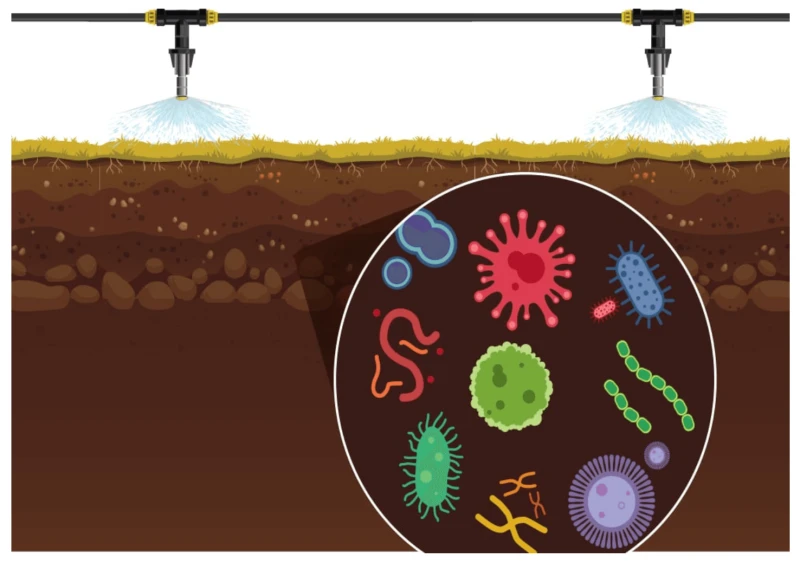Viewpoint: Misguided attacks on glyphosate ‘dangers’ ignore how the weedkiller enables sustainable soil systems in prairies and grasslands
Viewpoint: Misguided attacks on glyphosate ‘dangers’ ignore how the weedkiller enables sustainable soil systems in prairies and grasslands


Glyphosate is Canada’s top-selling pesticide, mostly used in agriculture as a herbicide and to desiccate crops for harvest. While it has come under increasing scrutiny in recent years, glyphosate continues to play an important weed management role on many western Canadian farms.
A study by University of Saskatchewan researchers suggests glyphosate has served another important function — making Prairie agriculture more sustainable.
A key finding was farmers had shifted away from cropping systems that utilized intensive tillage and summerfallow to no-till systems. This was due in part to the advent of glyphosate and the complementary technology of genetically engineered herbicide-tolerant crops in the 1990s, which meant producers no longer had to rely on tillage as their main form of weed control.
[Stuart] Smyth says the two technologies, by slashing the reliance on intensive tillage practices and summerfallows in favour of no-till systems, enabled farmers to boost sustainability through improved soil quality, less erosion and reduced fuel consumption and greenhouse gas emissions.…
According to Smyth, the study also illustrates how glyphosate and herbicide-tolerant crops have been a main driver of increased carbon sequestration in Saskatchewan’s agricultural soil by facilitating the adoption of conservation tillage and reduced summerfallow practices.
This is an excerpt. Read the original post here

 | Videos | More... |

Video: Nuclear energy will destroy us? Global warming is an existential threat? Chemicals are massacring bees? Donate to the Green Industrial Complex!
 | Bees & Pollinators | More... |

GLP podcast: Science journalism is a mess. Here’s how to fix it

Mosquito massacre: Can we safely tackle malaria with a CRISPR gene drive?

Are we facing an ‘Insect Apocalypse’ caused by ‘intensive, industrial’ farming and agricultural chemicals? The media say yes; Science says ‘no’
 | Infographics | More... |

Infographic: Global regulatory and health research agencies on whether glyphosate causes cancer
 | GMO FAQs | More... |

Why is there controversy over GMO foods but not GMO drugs?

How are GMOs labeled around the world?

How does genetic engineering differ from conventional breeding?
 | GLP Profiles | More... |

Alex Jones: Right-wing conspiracy theorist stokes fear of GMOs, pesticides to sell ‘health supplements’




 Viewpoint — Fact checking MAHA mythmakers: How wellness influencers and RFK, Jr. undermine American science and health
Viewpoint — Fact checking MAHA mythmakers: How wellness influencers and RFK, Jr. undermine American science and health Viewpoint: Video — Big Solar is gobbling up productive agricultural land and hurting farmers yet providing little energy or sustainabilty gains
Viewpoint: Video — Big Solar is gobbling up productive agricultural land and hurting farmers yet providing little energy or sustainabilty gains Fighting deforestation with CO2: Biotechnology breakthrough creates sustainable palm oil alternative for cosmetics
Fighting deforestation with CO2: Biotechnology breakthrough creates sustainable palm oil alternative for cosmetics Trust issues: What happens when therapists use ChatGPT?
Trust issues: What happens when therapists use ChatGPT? 30-year-old tomato line shows genetic resistance to devastating virus
30-year-old tomato line shows genetic resistance to devastating virus California, Washington, Oregon forge immunization alliance to safeguard vaccine access against federal undermining
California, Washington, Oregon forge immunization alliance to safeguard vaccine access against federal undermining The free-range chicken dilemma: Better for birds, but with substantial costs
The free-range chicken dilemma: Better for birds, but with substantial costs ‘You have to treat the brain first’: Rethinking chronic pain with Sanjay Gupta
‘You have to treat the brain first’: Rethinking chronic pain with Sanjay Gupta
